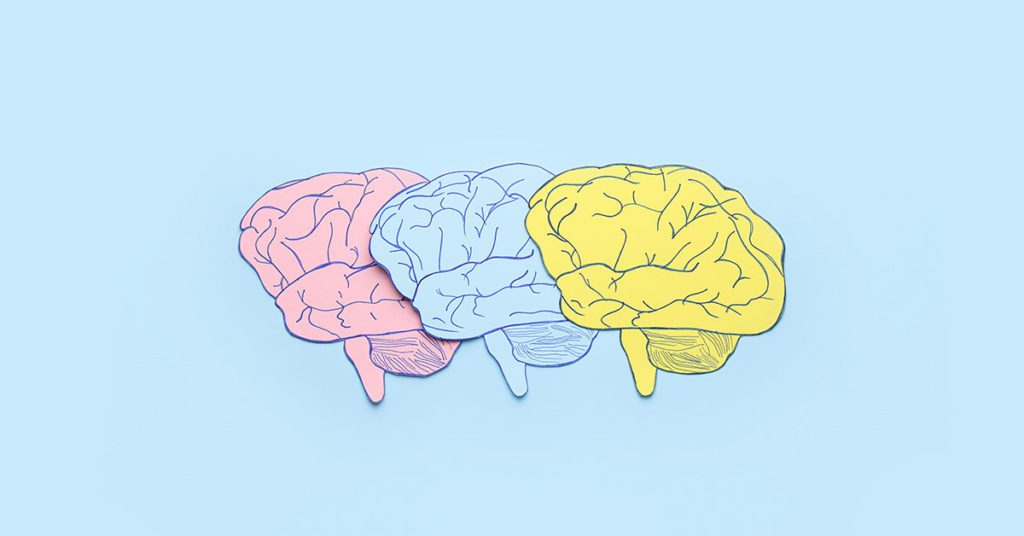


How Good Sleep Habits Help in the Battle Against Memory Loss
If you feel like your memory is not what it used to be, it may be more than just getting older. The good news is, there is plenty of quality, time-tested solutions to help get your brain back on track and feeling sharp. One of the easiest and most effective memory-boosters might be the one you are already working on every day: good sleep habits.
Ask just about anyone—from college students to older folks—and you might find that getting enough sleep is one of the hardest things to fit into a busy schedule. But for anyone focused on boosting brainpower, sleep is vital, and getting the right amount of sleep could be one of the most powerful ways to protect your memory and keep your brain working the way you want.
How Does Sleep Impact Memory?
Resting, recharging, and remembering—they all have a lot more in common than you might think.
The fact is, sleep is critical in helping your brain form, retain, and remember important information gathered throughout the day. It is a crucial part of how the human memory works, and without a balanced sleep schedule, you may find yourself struggling to remember the important stuff when your morning alarm goes off.
To truly understand how sleep impacts memory, we must understand the basics of how memory works, how memory plays a role in overall brain health, and how sleep plays a critical role in keeping your memory sharp, and on-point each and daily.
How Memory Works
Scientific understanding of how memory works and how the brain creates memories is still an ongoing discussion. Overall, we know a few things about memory that are important to understand: long-term memory vs. short-term memory; and the three steps toward forming new memories.
Long-Term vs. Short-Term Memory
Why is the distinction important? Because long-term and short-term memory work in different ways, they work with each other to help you accomplish things, and both are key to making your memory work the way it should.
Think back to some of your most stirring childhood memories—driving your first car, meeting your partner, past holidays or celebrations—and you will be tapping into your long-term memory.
These are the essential experiences in your life that your brain has retained very consciously, so you can think back and remember them as you get older. Long-term memory also plays a primary role in making complex decisions, as you learn from previous experiences (and mistakes) and apply those lessons to new challenges.
In contrast, think about what you had for breakfast this morning or where you last left your keys. Short-term memory is an activity your brain captures and retains automatically and unconsciously so you can quickly make everyday decisions based on your surroundings. These are not big, life-affirming moments; they are simple, everyday occurrences that help you get through the day successfully.
To build long-term memories, you need to use and combine a lot of short-term memories. The brain and its ability to gather and retain these short-term memories are immensely critical toward keeping your mind and memory sharp overall.
Sleep plays a vast role in protecting both short-term and long-term memory, and without a balanced sleep schedule, both could suffer—starting with your ability to form new memories in the first place.
The Three Steps to Forming New Memories
The process of forming new memories for both short- and long-term retention includes three critical steps, each of which is necessary for healthy brain function:
- Assemble, or gather up-to-date information as part of your ongoing, everyday learning process.
- Consolidation, or storing and organizing that information into meaningful, cohesive thoughts.
- Recall, or the ability to quickly retrieve, contextualize, and process this stored information when needed.
Do not be fooled by how simple these seem: they each play a vast role in giving your brain a path to gathering, forming, and using memory in your day-to-day life.
Developing strong and lasting memories means your brain needs to be able to accomplish each of these three steps quickly and accurately. That means making sure your brain has the correct focus and energy to learn and process new knowledge; putting that information to good use when and where needed.
Sleep plays a big part in keeping all three of these processes moving like clockwork as you go about your daily life. Without the right level of sleep, it will seriously hinder your brain and its ability to retain and recall information.
How Sleep Habits Impact Memory
When you sleep, your body may be resting, but your brain is still doing a lot of important work. This resting period is a critical time for your brain; since its when it takes all the information you have acquired during the day and forms it into memories.
Those memories are the same ones you will take with you throughout life, meaning if your brain does not have the right time to do that work, you may find yourself forgetting the things you need to know when you wake up.
Sleep & Memory Consolidation
Perhaps the most crucial impact of sleep on memory is the brain’s ability to consolidate information into meaningful memories.
Remember: consolidation is not about taking in updated information; instead processing and organizing recent information into meaningful memories. There is a widely accepted hypothesis that sleep is the time frame that memory consolidation happens since the sleeping brain provides the ideal conditions for encoding memories for long-term storage.
The strong association between consolidation and sleep has some scientists suggesting that sleep is for the mind, more than it is for resting the body. That means if you want a healthy, well-functioning brain, you need to get your sleep.
Sleep & Learning
While most of your actual learning process happens while you are awake—taking in new information and gathering new experiences—sleep plays a critical role in recharging your brain to make room for new memories along the way.
It mainly takes place in a section of the brain called the hippocampus, responsible for storing new activity immediately after acquisition. The hippocampus uses complex molecular signaling to store experiences for consolidation into memories.
Some studies suggest that lack of sleep can significantly disrupt these molecular signals in the hippocampus, thus making it even harder for your brain to properly take in new, critical information. Think of it like trying to upload new data to a computer out of storage space: unless you clear out room for updated information, you will not be able to fit much more.
That is where sleep comes in, providing that necessary “recharging” period for the hippocampus. During sleep, your brain takes all the information you have learned during the day and consolidates it into memories, clearing space for new information along the way. Not enough sleep will leave you waking up with a hippocampus only half-full.
Sleep & Recall
Memory is one of our best tools for adapting to new challenges. When an unexpected problem presents itself, your brain can think back to other similar situations to understand the best path forward. Importantly, this only works if your brain can efficiently recall that information when it counts.
Sleep plays a vast role in your recall, acting as a crucial time frame for the hippocampus to transfer newly acquired information to other parts of the brain, especially the neocortex, where it can be encoded and stored as episodic memory.
Due to this, good sleep habits are highly beneficial to improving and protecting recall, and maintaining good sleep schedules before learning new information may be essential toward retaining and storing that information as lasting memories.
Sleep & Creative Thinking
Sleep is strongly associated with creative thinking. Some studies show a connection between good sleep habits and an increased ability to associate information into new and inventive combinations, especially during and after the rapid eye movement (or REM) phase of sleep.
There is a correlation that healthy sleep patterns give the brain enough time to reach the REM phase and cycle in and out of deep sleep; and creative thinking, even when compared to both a non-sleeping control group and a light sleep non-rapid eye movement (or NREM) sleep pattern. It is not how long you rest but also how well you sleep that may impact and even improve your creative processing.
Sleep & Long-Term Memory
While good sleep is associated with stronger short-term memory recall, what about long-term? Can a good night of sleep help turn those new experiences into lasting memories?
The answer: quite possibly! A 2009 study by researchers at MIT demonstrated that mice who ran through a maze a then had a chance to sleep would replay the course during sleep, helping to remember and memorize that course. The same neural passageways in the brain active during their run through the maze would also activate during sleep, which assisted the mice in remembering their path more efficiently.
An interesting finding is that the mice who had pathways blocked during sleep did not retain that same information six weeks later, compared with mice who did replay the maze in their sleep were capable of remembering the path for a much longer duration.
While the science on sleep and long-term memory are still in the research phase, there is strong evidence to suggest that rest acts as a natural pathway for new memories to become long-term memories. Good sleep is crucial to building these lasting connections.
How Do Restful Sleep Habits Help Protect Against Memory Loss?
The connection between sleep and memory has been growing stronger in recent years. There is an emphasis on prioritizing good sleep habits; since these habits change the abilities of a person to create, form, and keep lasting memories throughout their lives.
Some studies suggest that sleep deprivation (or the consistent lack of good sleep) can directly contribute to poor memory in people of all ages, and conditions like sleep apnea and insomnia can make this worse over time. Data has shown that people over the page of 60 tend to experience a 70% loss of deep sleep compared to younger people. Memory problems associated with rest get even worse as we get older.
This data illustrates the importance of maintaining good sleep habits and sleep schedules at all points of our life, especially as we get older.
How Can I Improve My Sleep Habits?
Whether you are looking for ways to build better sleep habits or methods to improve your sleep in general, there are a few easy ways to make sure you are getting the shuteye you need to keep your brain sharp.
What Are Good Sleep Habits?
The actual amount of sleep required for each person changes as you get older, but a good guideline for anyone over 18 years old is to aim for around 8 hours of uninterrupted sleep per day.
Poor sleep, waking up regularly, or even snoring can all negatively impact your sleep, so you should talk with your doctor if you are experiencing these issues.
Tips for Improving Your Sleep Habits
Do you have difficulty sleeping? Not sure how to improve your sleep schedule? Here are a few easy suggestions for getting your sleep back on track to support healthy brain function and better memory building.
- Go to sleep and wake up at the same time every day. Consistency in your sleep patterns is hugely beneficial to building good sleep habits, both mentally (telling yourself it is time to sleep) and physically (letting your body know it is time to sleep).
- Create a good sleeping space for yourself. Make sure your bedroom or sleeping area is dark, quiet, and at the right temperature while you sleep. Doing this will help your body fall asleep and stay asleep better.
- Avoid large meals and caffeine before bedtime. Going to sleep with a full stomach could make it difficult to fall asleep. World-renowned neurologist; Dr. Dale Bredesen suggests finishing your last meal 3 hours before sleeping.
- Avoid screen time before and during bedtime. Try to give your eyes (and mind) a break from smartphones, TV, and computers right before falling asleep.
- Exercise during the day. Exercise and regular physical activity offer significant benefits to brain health already and can help you fall asleep more easily at night.
Sleep is Just One Factor in Protecting Your Memory
Keeping your sleep patterns on the right track is highly beneficial to your memory and overall brain health. When combined with other healthy habits, restful sleep can support your mental acuity and improve your overall brain performance.
Are you focused on boosting your brainpower and preventing the slide into subjective cognitive decline? Especially as you get older, good sleep habits are a great addition to any brain-boosting regimen. When incorporated into a healthy, brain-focused lifestyle, good sleep patterns could be highly beneficial to keeping your memory sharp for years to come.
- Tags: Brain Health, sleep, Sleep Habits


